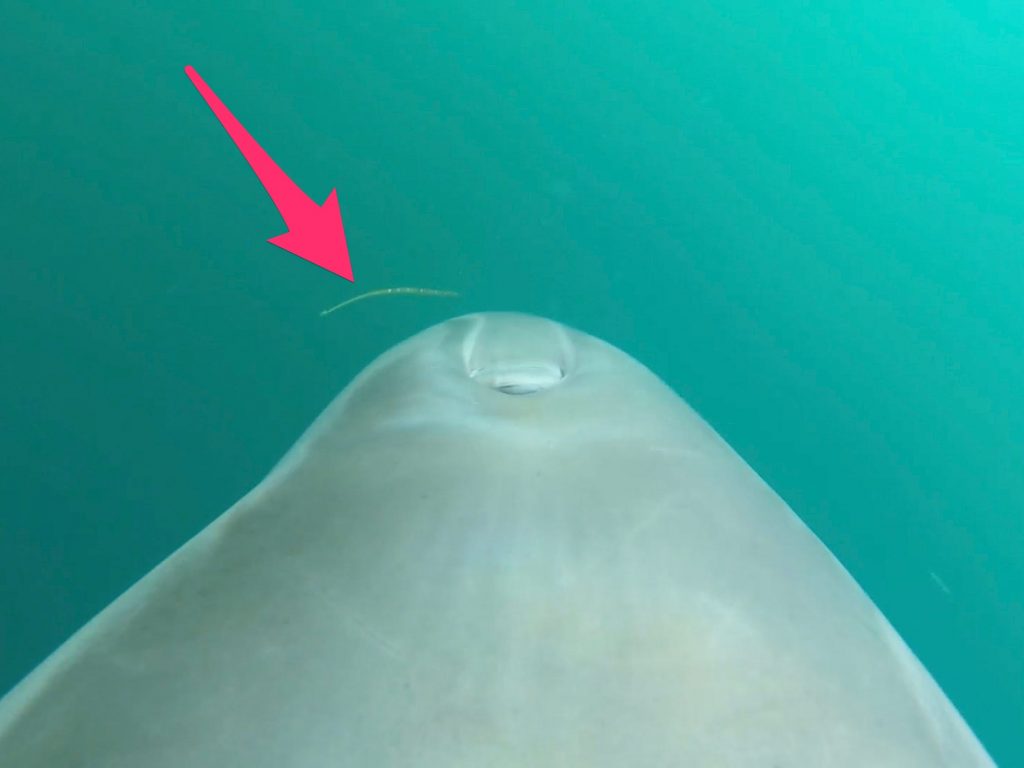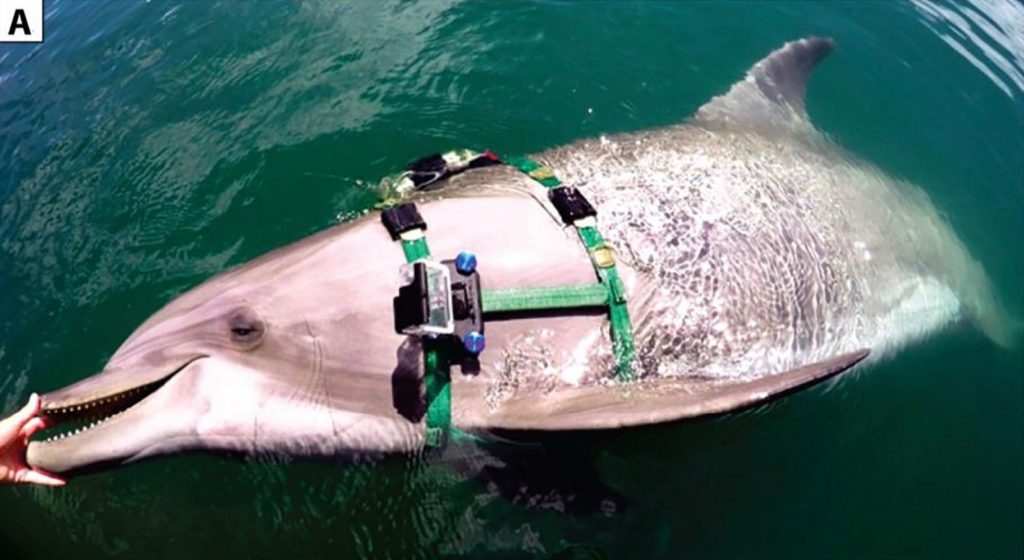- A Navy-trained bottlenose dolphin devoured eight venomous sea snakes one day, GoPro videos show.
- Dolphins have never been documented eating sea snakes, only playing with them.
- The attacks puzzled scientists, since consuming venomous snakes can be dangerous.
A Navy-trained dolphin hunted and devoured eight venomous sea snakes in a single day, the first time scientists have documented such behavior.
Researchers at the National Marine Mammal Foundation in San Diego, California, strapped GoPro cameras to a pair of bottlenose dolphins, which the US Navy has trained to locate mines with their sonar calls. The dolphins were off the job for their video project. The scientists wanted to see them do what they do best: hunt fish.
One of the dolphins, though, opted for a more unorthodox meal. Cameras recorded her eating eight yellow-bellied sea snakes one day. Prior to this study, which was published in the journal PLOS ONE on Wednesday, there was no documentation of dolphins eating sea snakes — only playing with them and releasing them. Ingesting venomous snakes can be dangerous.
In one video, below, the dolphin catches a snake and swims around with it for a while, jerking its head repeatedly to swallow the prey. Then it emits a high-pitched "victory squeal," according to the study.
from on Vimeo.
"The dolphin clicked as it approached the snake and then sucked it in with a bit more head jerking as the flopping snake tail disappeared and the dolphin made a long squeal," the study authors wrote.
Did you see it? The sea snake was only visible for a split second before the dolphin snatched it up.

At first the researchers didn't believe their eyes. They searched for other fish that might look like a sea snake on camera, but they found no other explanation.
"I've read that other large vertebrates rarely prey on the yellow-bellied sea snake. There are reports of leopard seals eating and then regurgitating them. This snake does have the potential to cause neurotoxicity after ingestion and its venom is considered fairly dangerous," Dr. Barb Linnehan, director of medicine at the National Marine Mammal Foundation, said in a statement emailed to Insider.
The dolphin showed no signs of illness after her sea-snake meals, the researchers reported. They aren't sure why she was pursuing such risky prey, but they suspect that she'd simply never learned any better, since she was born in captivity.
"Perhaps the dolphin's lack of experience in feeding with dolphin groups in the wild led to the consumption of this outlier prey," the study authors wrote.
All the snakes she caught on camera were quite small, and the researchers suspect they were newborns. The dolphin did try to snag one larger snake, but it escaped.
"Perhaps because the snakes ingested were thought to be juveniles, they had a lower amount of venom present," Linnehan said.
The research was led by Sam Ridgway, a prominent marine-mammal scientist who earned nicknames like "Dolphin Doctor" and "the father of marine mammal medicine," before he died in his San Diego home in July.

